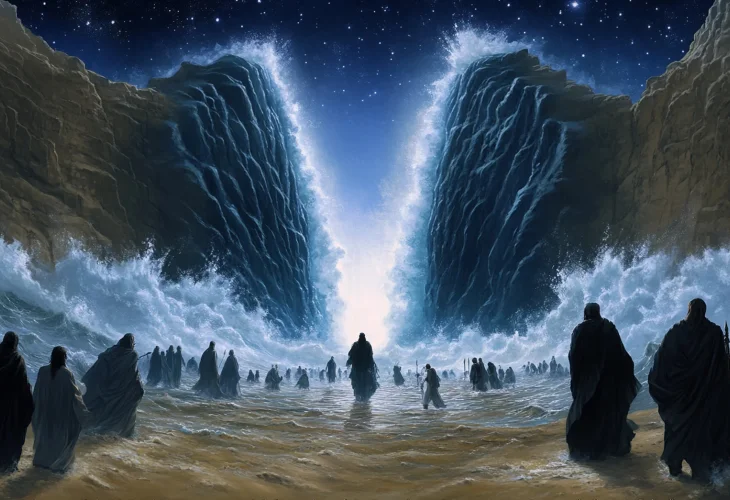Issues in the Bible
“And You Shall Know That I Am the Lord”: Why Faith Was the Hardest Part of the Exodus
Why the Israelites struggled to truly know God despite witnessing miracles — and how the Torah’s silence on Egyptian idolatry reveals a timeless truth about faith, illusion, and inner freedom

After Moshe finally agreed to take on the role of redeemer in the previous Torah portion, God spoke to him and delivered the “Speech of Redemption” he was to convey to the people of Israel.
That speech contained ten divine promises: “I appeared, I established, I heard, I brought out, I delivered, I redeemed, I took, I made known, I brought, and I gave.”
Out of all ten, only one requires something from the Israelites themselves — the eighth statement: “And you shall know that I am the Lord.”
It seems that the only demand placed upon them was to know God.
Ten Promises — One Condition
Through the covenant made with their ancestors, Israel was destined to be redeemed and to inherit the land — as God began by saying, “I appeared to Avraham…” and “I established My covenant with them.”
Remarkably, the people were asked to do nothing practical in return — only to know and believe in God: “The Lord will fight for you, and you shall remain silent.”
Even this phrase “and you shall know” appears as part of the series of promises, and not as a separate command. The redemption itself would be filled with miracles so great that knowledge of God would follow naturally. When reality itself reveals the divine, knowing becomes unavoidable.
Yet They Did Not Listen
In practice, the Israelites did not fulfill their part: “And they did not listen to Moshe.”
True, they had not yet witnessed the great miracles, but they had seen the signs, and that should have been enough to at least listen to Moshe.
Throughout the journey, this failure repeated itself. Even after the ten plagues, unlike anything ever seen before, many still did not achieve the full awareness implied in “You shall know that I am the Lord.”
At the Red Sea, again, faith faltered. At every stage, something was missing. Eventually, far more was required of them to prove their trust, and as a result they faced punishments — including forty years of wandering in the desert.
Why Is It So Hard to “Know”?
It seems so simple. Their ancestors’ God had revealed Himself to them, promised miracles, and fulfilled His word. What could be unclear?
The prophet Yechezkel uncovers the secret: “When I chose Israel, I made Myself known to them in the land of Egypt… and I said to them: Each of you, cast away the detestable things of your eyes, and do not defile yourselves with the idols of Egypt… But they rebelled against Me and did not listen; they did not forsake the idols of Egypt… And I acted for the sake of My Name, that it should not be profaned before the nations…” (Yechezkel 20).
The Israelites struggled to “know” God because they were deeply attached to the Egyptian worldview and its idolatrous mindset. As the Sages say: “These worshipped idols, and those worshipped idols.”
The Torah’s Silence About Idolatry
Why, then, does the Torah not mention this explicitly? Anyone reading the Exodus story might think the Israelites simply lacked faith or strength of spirit.
The Torah’s silence is deliberate. From the Torah’s perspective, idolatry is nothing. It has no substance, no power, and no reality worth describing. The Torah refuses even to grant it the dignity of being called a “difficulty.”
From the Israelites’ own perspective, breaking free from those beliefs felt impossible — like renouncing everything they knew. However from the Torah’s point of view, it was all illusion, and mere emptiness.
The Timeless Lesson: When Falsehood Feels Solid
That is the Torah’s enduring message. At times, the ideas and cultural assumptions around us seem so deeply ingrained that we can’t imagine letting them go. They feel solid, obvious, and unquestionable.
However, viewed through the lens of truth and time, they vanish like smoke. The Torah’s version of the story strips away the illusion: God appears, His actions are seen, and humanity is asked to do just one thing — to know Him.
Ultimately, everything else is transparent — nothing at all.

